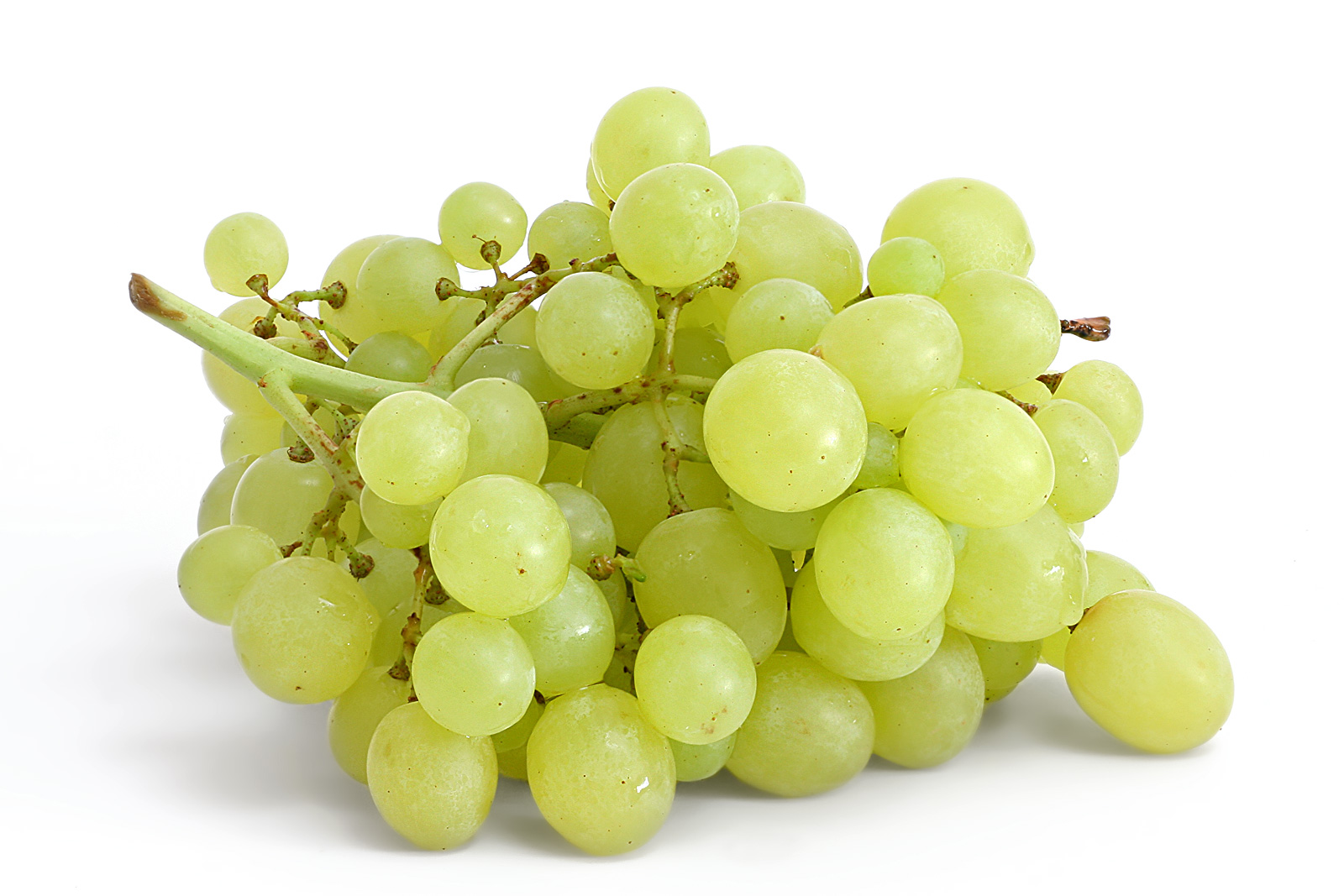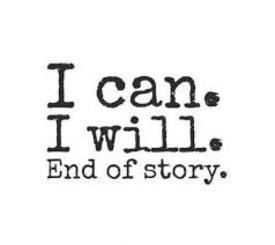Thought I'd picked a healthy breakfast option ...

Becky170467
Posts: 69 Member
Fage - Total 0% Fat Greek Yogurt With Honey, 1 container (170g)
- Wrong
- 32g of SUGAR !!! 184 calories !!!
- Wrong
- 32g of SUGAR !!! 184 calories !!!
0
Replies
-
Eh, that yogurt is a good protein source. But I prefer the 2% variety.0
-
what is wrong with that?
sugar is not bad for you and does not need to be avoided unless you have a medical condition ….
I eat 100+ grams of sugar a day and have had no issues with overall health, losing weight, etc…
Eat the foods that you like in moderation and make sure you hit your calorie goal. That is the most important factor in weight loss. Over context of your diet and dosage is what matters, not individual food choice….0 -
So you bought the one with honey in it and are surprised there is sugar?0
-
What's wrong with it?0
-
I look at the labels, and you can be surprised at the amount of carbs in one container. I try to find yogurt with less than 10 carbs. Full fat plain Greek yogurt has 9 carbs. Chobani is 13 carbs. One time, I enjoyed a healthy, Siggis yogurt....blew my carbs for the day!0
-
Buy the plain Fage, and then put in your own fruit, jam, whatever
. That's what I do. By the by, I also now buy 2%, and I like it alot more. 0
0 -
In to echo others, there is absolutely NOTHING wrong with what you had, how is a less than 200 calorie breakfast bad for you and I wouldn't worry too much about sugar, unless medical or you are waaay over doing it (7 cans of coke a day type of overdoing it).0
-
I eat Noosa every day and never checked the carbs until right now. 31 g of deliciousness.0
-
Sounds fine to me0
-
As other's why's that unhealthy? I'd be more concerned about only 184 calories that's more like a snack not breakfast0
-
I eat Noosa every day and never checked the carbs until right now. 31 g of deliciousness.
That Noosa stuff is great! I wish it had more protein, but there's something so different about the taste that I really enjoy.
Also, 2% Greek yogurt for the win. Nothing wrong with some sugar or 184 calories. Also, a 184-calorie breakfast sounds pretty low. I'd be starving by 9AM. Hopefully there are mid-morning snacks in store!
OP, if you're worried about getting the most bang for your buck, try eggs for breakfast, if you can stomach them. I hard-boil 20 eggs (well, I do Alton Brown's oven version that is basically "set it and forget it" with no clean-up) every Sunday so that my husband and I can have two each morning during the work week. He nukes four slices of turkey bacon (two for each of us) each morning while I get the kids dressed and downstairs, and voila! A delicious, filling breakfast for:
220cal
0g carbs (not that I'm into watching carbs, but if you care, that's what it is)
15g fat
20g protein
Add in my coffee with a little half and half and a little sugar, and my breakfast becomes:
255cal
4g carbs
17g fat
21g protein
That half and half adds just a bit of delicious, filling fat and protein
I eat breakfast at about 6:15 each morning, and 9 times out of 10 it doesn't even occur to me that lunchtime is approaching until at least 11:30. (That 1 out of 10 is usually due to TOM.)
Hopefully that's helpful to you. If you don't want to eat bacon and eggs for breakfast, that's cool, too. I hope you find something that works for you.0 -
This content has been removed.
-
I think Becky is just a little surprised at the amount in what we perceive as a healthy choice. (am I right?)...... I find that usually products (especially things like this) that are labelled low fat, are high in sugar content to compensate.
 0
0 -
-
If that is all you are eating for breakfast then it's not "healthy". You should be getting closer to 350 calories for a meal. The amount of sugar shouldn't concern you unless you are diabetic and then only if it caused your glucose to spike. Think about your whole day, what other sources of sugar are you consuming throughout the day. If that is all or most of what you get, it's not a bad deal. People have got to stop villianizing (is that a word?) certain foods. In the overall scheme of things I would much rather consume sugar, honey, or other natural forms of sugar than the chemicals that are in artificial sweeteners.
0 -
Sweets1954 wrote: »If that is all you are eating for breakfast then it's not "healthy". You should be getting closer to 350 calories for a meal. The amount of sugar shouldn't concern you unless you are diabetic and then only if it caused your glucose to spike. Think about your whole day, what other sources of sugar are you consuming throughout the day. If that is all or most of what you get, it's not a bad deal. People have got to stop villianizing (is that a word?) certain foods. In the overall scheme of things I would much rather consume sugar, honey, or other natural forms of sugar than the chemicals that are in artificial sweeteners.
THIS!
vilifying is the word just fyi
0 -
Sweets1954 wrote: »You should be getting closer to 350 calories for a meal.
what?! no!
how can you give a number of calories that a meal should be when you know nothing about the OPs eating patterns or calorie goal?
0 -
32 grams of sugar is kind of a lot for only 180 calories. That means your breakfast is mostly just sugar. A high sugar breakfast can make some people (not everyone) become hungry again quickly. There are other yogurt options that have the same amount of protein, still taste good, and yet have almost half the sugar and calories.
OP, if you want relatively more healthy yogurt try Siggi's. It has more protein than sugar.0 -
Sweets1954 wrote: »If that is all you are eating for breakfast then it's not "healthy". You should be getting closer to 350 calories for a meal. The amount of sugar shouldn't concern you unless you are diabetic and then only if it caused your glucose to spike. Think about your whole day, what other sources of sugar are you consuming throughout the day. If that is all or most of what you get, it's not a bad deal. People have got to stop villianizing (is that a word?) certain foods. In the overall scheme of things I would much rather consume sugar, honey, or other natural forms of sugar than the chemicals that are in artificial sweeteners.
While it's true that the media has done a big disservice by overly villifying (yeah, I don't know how to spell that either!) certain foods, that doesn't mean there aren't any drawbacks to foods that have 2/3 of their calories coming from added sugar. At the very least you shouldn't choose such a food because you think it's "healthy."
There is no need to get a specific amount of calories for breakfast. Many people skip breakfast altogether and do just fine.0 -
Um...
Fat=/=sugar0 -
snowflake954 wrote: »Buy the plain Fage, and then put in your own fruit, jam, whatever
. That's what I do. By the by, I also now buy 2%, and I like it alot more.
Both of which contain sugar...
TEH SUGARZ!0 -
I don't really get the "sugar ohnoes"....I'm actually having a cherry pomegranate Fage greek yogurt cup right now along with my pile of scrambled eggs. I consider it a pretty healthy breakfast. Carbs and protein in the AM are my friend.
If you're concerned about the calories, 184 calories isn't a lot of calories...to boot, calories are not an indicator of whether or not something is healthy.0 -
I'm not a fan of the yogurts that have added fruits, honey etc. in them. They're too sweet for me,
I make my own yogurt and I'll either have it straight up plain or I'll add a touch of honey, homemade jam or the like (and by a "touch" I mean one, maybe two teaspoons. Just enough for a touch of sweet but not overpowering).0 -
get the total, throw in two servings or so of fruit - keeps me full for a long time! one of my favorite breakfasts. yes, there's sugar, but is it an effective meal for you?0
-
I bought the 4% greek yogurt made from whole milk on accident once and refuse to go back down to nonfat now. I buy the plain yogurt and add my own honey and fruit to help control the sugar. Keep in mind, yogurt will always have sugar even if you buy the plain kind because milk has sugar. Not all the sugar is "added sugar" which is what most people are concerned with.0
-
cwolfman13 wrote: »I don't really get the "sugar ohnoes"....I'm actually having a cherry pomegranate Fage greek yogurt cup right now along with my pile of scrambled eggs. I consider it a pretty healthy breakfast. Carbs and protein in the AM are my friend.
If you're concerned about the calories, 184 calories isn't a lot of calories...to boot, calories are not an indicator of whether or not something is healthy.
apparently sugar is the antichrist....0 -
TavistockToad wrote: »Sweets1954 wrote: »You should be getting closer to 350 calories for a meal.
what?! no!
how can you give a number of calories that a meal should be when you know nothing about the OPs eating patterns or calorie goal?
according to another thread op is on 1200 a day calorie limit.0 -
The WHO says find a different breakfast.
http://www.who.int/mediacentre/news/notes/2014/consultation-sugar-guideline/en/
WHO’s current recommendation, from 2002, is that sugars should make up less than 10% of total energy intake per day. The new draft guideline also proposes that sugars should be less than 10% of total energy intake per day. It further suggests that a reduction to below 5% of total energy intake per day would have additional benefits. Five per cent of total energy intake is equivalent to around 25 grams (around 6 teaspoons) of sugar per day for an adult of normal Body Mass Index (BMI).
0 -

1 serving (126g) Is 88 calories and.... *GASP* 20g of sugar!
My point is... you shouldn't demonize the food you just ate. I mean come on, you had yogurt WITH HONEY are you really suprised by the "sugar content" when you were adding straight honey to the yogurt?
I know fage has plain 0% or plain 2% yogurt that are by themselves without the little flavoring cup on the side. Maybe try those next time if you absolutely cannot have sugar due to some health reason.0 -
The WHO says find a different breakfast.
http://www.who.int/mediacentre/news/notes/2014/consultation-sugar-guideline/en/
WHO’s current recommendation, from 2002, is that sugars should make up less than 10% of total energy intake per day. The new draft guideline also proposes that sugars should be less than 10% of total energy intake per day. It further suggests that a reduction to below 5% of total energy intake per day would have additional benefits. Five per cent of total energy intake is equivalent to around 25 grams (around 6 teaspoons) of sugar per day for an adult of normal Body Mass Index (BMI).
LOL no ...
ETA
I decided to click the link and they give no background as to how they come up with this number, but here is a snippet from their opening
"Free sugars contribute to the overall energy density of diets. Ensuring energy balance is critical to maintaining healthy body weight and ensuring optimal nutrient intake."
^ ground breaking stuff. Guess what, proteins and fats also contribute to the overall energy density of diets...
0
This discussion has been closed.
Categories
- All Categories
- 1.4M Health, Wellness and Goals
- 398.2K Introduce Yourself
- 44.7K Getting Started
- 261K Health and Weight Loss
- 176.4K Food and Nutrition
- 47.7K Recipes
- 233K Fitness and Exercise
- 463 Sleep, Mindfulness and Overall Wellness
- 6.5K Goal: Maintaining Weight
- 8.7K Goal: Gaining Weight and Body Building
- 153.5K Motivation and Support
- 8.4K Challenges
- 1.4K Debate Club
- 96.5K Chit-Chat
- 2.6K Fun and Games
- 4.8K MyFitnessPal Information
- 13 News and Announcements
- 21 MyFitnessPal Academy
- 1.6K Feature Suggestions and Ideas
- 3.2K MyFitnessPal Tech Support Questions




















